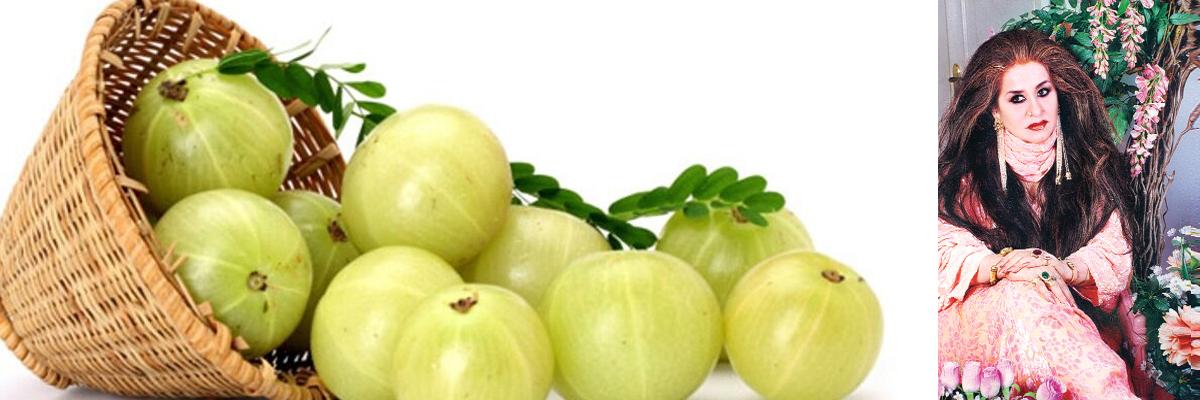For that divine beauty!

Amla considered as Divine Fruit in Hindu philosophy has been used to provide effective treatment to various lifestyle diseases in the ancient Indian medicinal practice of Ayurveda Amla also known as fruit of immortality has been considered to be a natures boon to revitalise potency, rejuvenating longevity, increases immunity and strength of bones and aids weight loss
Amla considered as ‘Divine Fruit’ in Hindu philosophy has been used to provide effective treatment to various lifestyle diseases in the ancient Indian medicinal practice of Ayurveda. Amla also known as ‘fruit of immortality’ has been considered to be a nature’s boon to revitalise potency, rejuvenating longevity, increases immunity and strength of bones and aids weight loss.
Whether you eat it, drink it or apply it, the ‘Desi’ superfood can be immensely beneficial to tighten your skin, lighten complexion, treat acne, make your hair shiny and dandruff-free and delay the effects of premature ageing such as fine lines, wrinkles, dark spots by boosting the regeneration of healthy new cells.
It is said that the Vitamin C content of amla is so stable that it is even resistant to heat. Modern scientific research has revealed that amla contains 1,700 mg of vitamin C per 100g. Amla is widely grown in India. The berries can be eaten raw or made into pickles and ‘murabba’. Amla juice, added to a glass of water, is said to have tonic effects.
The oil extracted from the berries has been used since the ancient times to control hair loss and restore health to the hair. Oil of amla is an important ingredient in Ayurvedic treatments, as well as hair oils, hair tonics, shampoos and conditioners. Massage with oils containing amla is said to be extremely beneficial, as it stimulates the follicles. It also clears away dandruff flakes, unclogs the pores of the scalp and restores health to the scalp.
Amla home remedies: It is said to check to grey. So, you can have the juice of one raw amla daily, after adding it to a glass of water. You can also add amla to henna powder. However, henna leaves a reddish brown colour on white hair, as you know. It will not colour dark hair. If you would like to try it, you can soak a handful of dry amla in about 2 to 3 cups water overnight. Next morning, strain the water but do not throw the water away. Grind the amla. To the henna powder, add the ground amla, 4 teaspoons each of lemon juice and coffee, 2 raw eggs, 2 teaspoons oil and enough amla water, so that the henna mixes into a thick paste. Keep the paste for two to three hours and then apply it on the hair, so that the entire head is covered. Keep it on for at least two hours and wash off with plain water.
Homemade shampoo: To make homemade shampoo for silky hair, take one handful of dry herbs of reetha, amla, and shikakai and add it to a litre of water and allow it to soak overnight. The next day, simmer it on a low fire, till the water reduces to half the quantity. Do not allow it to boil on a high flame, but rather simmer on a very low fire. Let the mixture cool and then strain it with a clean cloth. Use the liquid for washing the hair. The decoction can be kept in the refrigerator for 3 or 4 days.
Hair oil: To make amla hair oil, take a handful of dry amla. Grind coarsely and add it to 100 ml pure coconut oil. Keep it in an airtight glass bottle and keep the bottle in the sun daily for about 15 days. Then strain the oil and store. The oil can be used to apply on the hair. For glowing skin: Regular intake of amla juice purifies blood and fights toxins which helps you to get flawlessly radiant skin. Daily intake of fresh amla juice with honey serves as a great beverage and makes your skin complexion brighter and lighter. It helps to get rid of acne and pimples. Regular intake of amla juice delays the effects of premature ageing and helps to maintain youthfulness and vitality for a long time.








